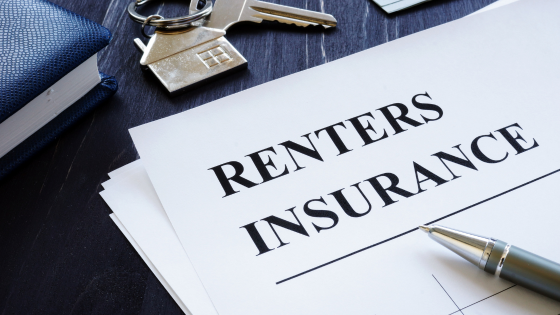You’ve found the perfect home to rent, but the landlord says you need to buy renters insurance. You’re not sure why you need coverage and are wondering whether your landlord even has the right to make you buy it. These questions are understandable, but the reality is that landlords can, and often do, require renters insurance. In fact, this is usually in the renter’s best interest.
What Does Renters Insurance Cover?
Renters insurance is designed for people who rent a house or apartment. According to the Insurance Information Institute, standard renters insurance typically provides three types of coverage:
- Personal Possession Coverage – The cost to repair or replace personal possessions that are damaged, destroyed, or stolen in a covered peril, such as a fire or burglary, up to the policy limit.
- Additional Living Expenses – Extra costs you incur if your rented home is inhabitable due to a covered peril. This coverage typically provides reimbursement for hotel bills and certain other costs.
- Personal Liability – Some liability coverage for third-party claims involving bodily injury or property damage caused by you, your family members, or your pets.
Why You Need Renters Insurance
Some renters mistakenly believe they don’t need renters insurance because their landlord should maintain insurance coverage. Although it’s true that landlords usually do maintain adequate coverage, this insurance does NOT adequately cover the needs of tenants. Landlords purchase insurance to cover themselves – renters need insurance to protect their own possessions and to protect against their own exposures.
Landlords are not typically responsible for replacing a tenant’s personal property after a disaster or theft. Renters insurance – not the landlord’s insurance – typically pays for a tenant’s personal property. Renters can also benefit from the coverage for additional living expenses and personal liability that renters insurance provides.
Consider the following scenarios:
- A fire destroys your unit. Your landlord’s insurance covers the cost of repairing the building, but it does not cover the clothes, furniture, electronics, kitchen goods, or other items you own. Thankfully, your renters insurance provides coverage.
- Your dog escapes and bites a child who lives next door. The parents are suing you. The personal liability coverage under your renters insurance pays for the claim.
- Your laptop is stolen from the trunk of your car. When you contact your auto insurance company, you learn that your policy doesn’t cover personal belongings. However, coverage is available under your renters insurance policy.
How Much Renters Insurance Do You Need?
Your lease should clearly state whether you’re required to have renters insurance and what the minimum coverage amounts are. For example, your lease may require you to buy at least $30,000 in personal property coverage and $100,000 in liability coverage. You may decide this minimum amount is sufficient or you may want higher limits.
- To determine how much personal property coverage you need, conduct an inventory of your belongings, and add up their values. Although this can take some work, you may be surprised by how much your possessions are worth. Having an inventory of your items will also be useful if you ever need to file a claim. If your belongings are worth more than the minimum limit, consider raising your limit. You may also need to obtain additional coverage for individual high-value items because policies typically have a lower per-item limit. For example, even if you have $30,000 in total coverage, the limit for a single item might be $1,500.
- Decide whether you want more liability coverage. This is especially important if you have assets – such as savings – that could be at risk if you are sued. In addition to raising your liability coverage limits, you can purchase an umbrella insurance policy to secure additional liability coverage on top of your renters, auto, and other underlying insurance policies.
Even if your landlord doesn’t require renters insurance, securing coverage can be a smart move. Renters insurance is often very affordable. An agent can help you find the best coverage for your needs and budget. Find an agent or get a renter’s insurance quote.
If you also need auto insurance, save money by getting an auto/renter’s insurance bundle.

